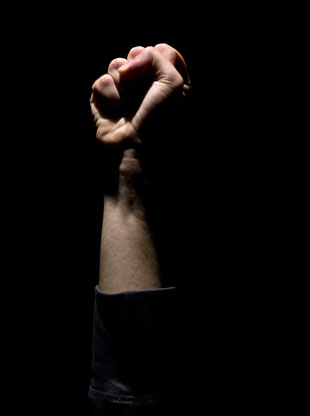On the morning of September 11, 2001, I landed at New York's LaGuardia Airport at 8:50 am, as the first plane hit the first tower. I had been scheduled to launch my book, Once and Future Myths, at Rizzoli's in the World Financial Center just across the street from the World Trade Center at 11 am. Walking out of the airport that morning was stupefying — the freeways were empty going into Manhattan. It was, as so many have commented, as if the world was ending. With a great effort my publisher found a way to bring me into Manhattan the next day to meet for lunch.
On my walk to the restaurant where we were to meet, blocks from Ground Zero, I passed a young man whose hair and face were lightly dusted with the falling ashes, that grisly mix of bone and plaster. Across his forehead he had etched into the white ash the word "REVENGE." Later that day I saw the same word — REVENGE — drawn, as if by angry fingers on street signs and across the windshields of abandoned cars. I've never been able to forget those images.
Now it is 2011. Over the past two years, the word "revenge" and all its implications came back to me in an angry rush as I worked on an anthology of essays and interviews, Beyond Forgiveness: Reflections on Atonement (Jossey-Bass, 2011). I came to realize that the synthesis of forgiveness and atonement, annunciated by such great leaders as Mahatma Gandhi, Martin Luther King, Desmond Tutu, and Nelson Mandela, is perhaps the most effective antidote to that fierce desire for revenge. Without forgiveness, there is no future, as Tutu says, but without atonement there is no present, in the sense that we can't live in the miracle of the present moment if we are hell-bent on retribution or retaliation.
And so every day I try to practice monitoring my own large and small urges to revenge, whether it's due to a personal affront, the humiliation of my favorite sports team, or a calamitous attack on my country.
The essayist Calvin Trillin once famously wrote, "Living well is the best revenge," a witty line, but one that can be amended, in every sense of that word, to "Living well is the best antidote to revenge."
— Phil Cousineau